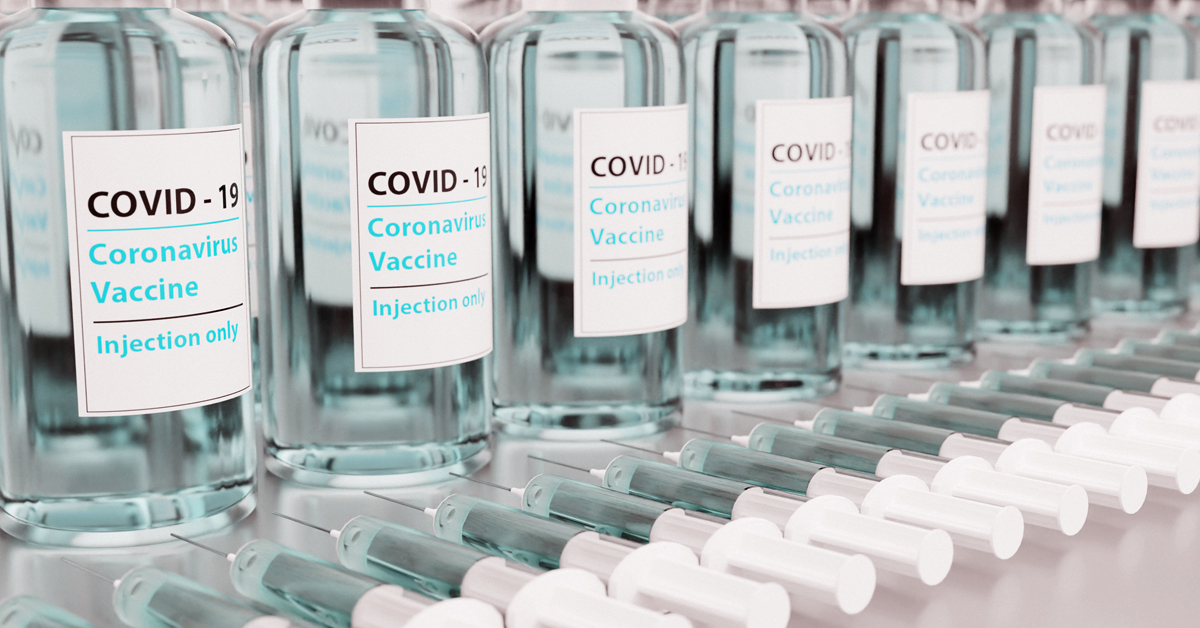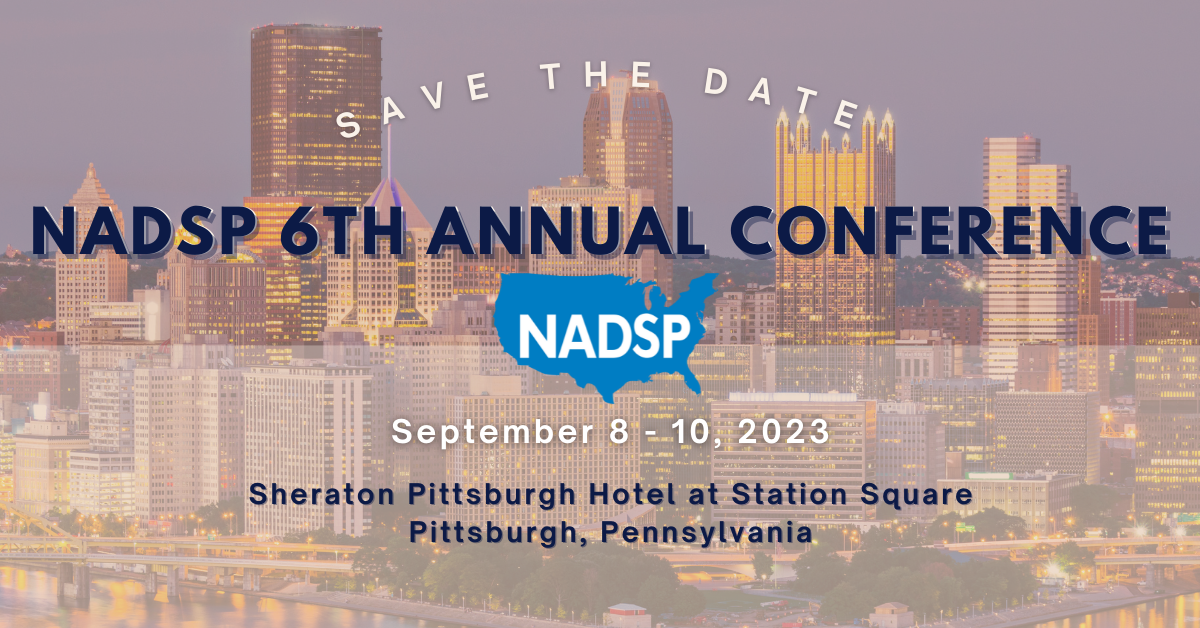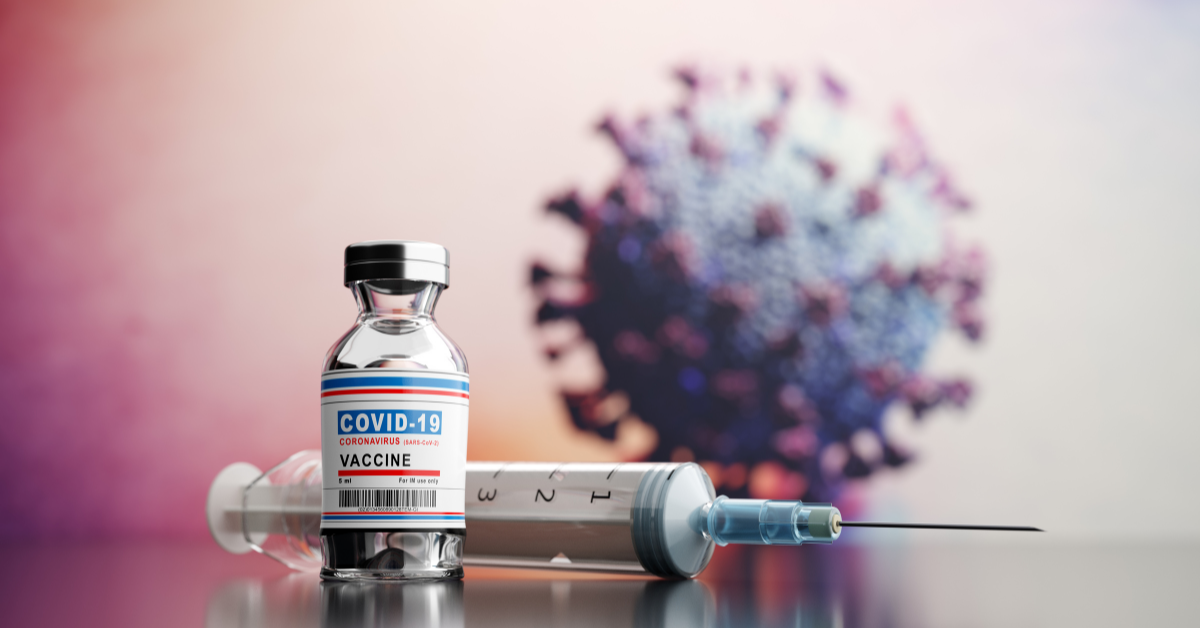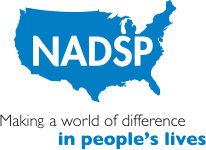
NADSP Statement on Vaccine Hesitancy and FAQ
Please note this post has been updated with additional information and resources as of December 2, 2021.
Since the onset of the COVID-19 pandemic in March 2020, direct support professionals (DSPs) from across the country have played a critical role in helping people with disabilities remain healthy, safe and informed about the virus. To assist DSPs in their work, the National Alliance for Direct Support Professionals (NADSP) has provided a variety of toolkits, resources and webinars with healthcare experts to share timely, trusted and well-researched information. In this vein, we remain committed to inform the direct support workforce and the disability community about the safety and efficacy of available vaccines.
DSPs who support people in their communities are often called upon to make independent judgments on a frequent basis that involve both practical and ethical reasoning. We understand there is continued hesitation among some DSPs about taking the COVID-19 vaccine, and we hope the recent full FDA approval of one of the main vaccines on the market helps calm these fears.
As NADSP’s Code of Ethics outlines, a DSP must commit to promoting the emotional, physical, and personal well-being of the people they support. DSPs must encourage personal growth and recognize the autonomy of individuals with disabilities receiving support while also being proactive and vigilant in protecting public health. To maintain the promise of partnership and respect that must exist in a supportive relationship, a strong ethical foundation is critical to help DSPs navigate through the maze of influences that bombard them around COVID-19 and available vaccines.
We understand that being vaccinated is a major health-related decision and requires research, information and examination. Furthermore, DSPs are entrusted to support people with disabilities in making their own informed decisions based on the associated risks and responsibilities that are tied to those decisions.
The following ideals and practices of informed decision-making will be useful to all who remain hesitant to vaccination.
- Make every effort to understand the health issues and current situation regarding COVID-19 and the available vaccines.
- Gather all the pertinent information about COVID-19 and available vaccines from credible sources to help with your decision. Always consult with your healthcare professional if you need more information.
- Explore the options and consider the outcomes of getting or not getting a vaccine.
- Act and make a decision based on factual information and science.
- Monitor and evaluate your decision.
The COVID-19 pandemic has impacted essentially every country across the globe, and all nations continue to fight the spread of this virus. Scientific evidence has clearly shown that the various COVID-19 vaccines, coupled with ongoing masking, handwashing, and social distancing practices offer significant protection from the virus and represents an opportunity to finally alter the course of this pandemic. The United States is fortunate to be a nation with widespread access to these important vaccines.
NADSP has compiled the following list of common questions and answers to assist DSPs in continuing to make informed decisions about their own health practices pertaining to COVID-19 prevention and in supporting people with disabilities during this time of uncertainty. This resource will be updated as frequently as is needed to get timely, accurate information into the hands of DSPs. You are more than essential workers in this fight – you are the backbone of the disability service sector and the catalysts for helping individuals with disabilities live fully inclusive lives in their communities.
Download This Statement
If you would like to access a printable version of the NADSP Statement on Vaccine Hesitancy and accompanying FAQ, you can download the PDF file of this statement/FAQ through the button below. Please note this document has been updated as of June, 2022.
DSP COVID-19 Vaccine Frequently Asked Questions (FAQs)
This list of frequently asked questions (FAQs) will answer common questions with valid information to help direct support professionals (DSPs) and individuals with disabilities make informed decisions about COVID-19 vaccination and prevention. You can either browse through the entire listing of FAQs, or click on the categories below to find information specific to each topic area.
Vaccine Access
How can I get a COVID-19 vaccine?
There are several ways to find a vaccination site.
-
-
- You can visit Vaccines.gov to find vaccination providers near you.
- You can text your ZIP code to 438829 or call 1-800-232-0233 to find vaccine locations near you in the United States.
- You can contact your local pharmacy to see if vaccination appointments are available. The Federal Retail Pharmacy Program website lists the pharmacies that are administering vaccines.
- You can also contact your state health department to find additional vaccination locations in the area.
-
Do I have to pay to get the vaccine?
No. Vaccine providers cannot charge you and you do not need health insurance to get a vaccine.
Will I need an ID to get the vaccine?
No. If the site asks for a form of ID, ask what may be acceptable.
You do not have to provide a Social Security Number to be vaccinated.
Can I receive the vaccine if I am not a U.S. citizen?
Yes. Everyone in the United States is eligible for vaccination against COVID-19.
Vaccine providers will not document your immigration status or report you to authorities.
What will I feel like after I get the vaccine? What are the side effects?
You may have some temporary side effects. They could include: Headache, soreness in the arm where you received the vaccine, tiredness, and nausea.
Many vaccines become less effective over time, and studies have confirmed this is the case with COVID-19 vaccines as well. At present, a booster is recommended after six months for adults who received the Pfizer or Moderna vaccines. A booster is recommended after two months for all adults who received the Johnson and Johnson vaccine.
Workplace Concerns
Can my employer require that I get the vaccine?
Yes. Your employer may require vaccination. Exemptions may be allowed in some cases, depending on your employer’s policies and the specific regulations governing your employer.
Will my vaccination status be kept confidential?
Employers can ask for proof of vaccination, but this information must be kept confidential and stored separately from the employee’s personnel files.
Will my employer provide paid time off for vaccination and recovery from potential side effects?
Employers may provide paid leave so you can get a vaccine. Some federal laws may require leave and some employers may be paid for allowing you to take time off.
The Biden administration is strongly encouraging all employers to offer paid time off for vaccination and announced that small and medium-sized agencies will be reimbursed for giving employees paid time off to get vaccinated.
If your employer is not offering paid time off, you may be able to locate clinics and pharmacies that will administer the vaccine outside of traditional hours.
No. If you are vaccinated, you should not be disproportionally assigned to individuals who have tested positive for COVID-19. Vaccination status should not affect your work assignments.
Should I receive the vaccine even if my clients are vaccinated?
Yes. Receiving a COVID-19 vaccine is an important step to protect yourself and others around you, including the people you support, your colleagues, family members, and other members of your community.
Vaccine Effectiveness
How do I know the vaccine is effective?
Scientific studies have shown that COVID-19 vaccines are highly effective at preventing hospitalization and death from COVID-19.
How do I know the vaccine is safe?
There are many sources of information about vaccines, correct and incorrect. Be sure that any information you are using comes from a credible source and is updated on a regular basis. Here are the facts as collected by trusted scientific resources.
-
-
- Tens of millions of people have received the COVID-19 vaccine since December
- Very few long-term side effects have been reported. Most vaccinated people have been fully protected from COVID-19.
- A very small number of people who get vaccinated may test positive for They may have no symptoms, or the symptoms they have are less severe than if they had not gotten vaccinated.
- As of August 23, 2021, the U.S. Food and Drug Administration (FDA) granted full approval to the Pfizer/BioNTech COVID-19 vaccine for people age 16 and older. Previously, there were three vaccines that had received emergency preliminary approval, which meant they had provided enough compelling data to demonstrate a significant amount of safety and But to receive full approval by the FDA requires meeting the stringent Biologics License Application (BLA) requirements, which includes at least six months of safety data from a majority of volunteers in a large, final stage clinical trial. Moderna submitted its application for FDA final approval in June, and it is anticipated they will also receive final approval in the near future.
-
Can I receive the vaccine if I have previously been infected with COVID-19?
Yes. You should be vaccinated regardless of whether you already had COVID-19. Experts do not yet know how long you are protected from getting sick again after recovering from COVID-19. It is possible that you could be infected with the virus that causes COVID-19 again or transmit the virus to others. Vaccination will offer more protection.
Can I receive the vaccine if I have an underlying medical condition?
People with certain underlying medical conditions are at increased risk for severe illness from the virus that causes COVID-19. COVID-19 vaccines are recommended for most people with underlying medical conditions. Talk to your healthcare providers for advice and inform your vaccination provider about your allergies and health conditions.
Can I receive the vaccine if I am pregnant or breastfeeding?
Yes. COVID-19 vaccines are safe for pregnant people and can protect you from severe illness from COVID-19. Pregnant and recently pregnant people are more likely to get severely ill with COVID-19 compared with non-pregnant people. Vaccination will protect against these risks.
Can I get COVID-19 from the vaccine?
No. None of the authorized vaccines contain the live virus that causes COVID-19. This means that a COVID-19 vaccine cannot make you sick with COVID-19.
Why are vaccinated people contracting COVID?
While COVID-19 vaccines are effective, a small percentage of people who are fully vaccinated still get COVID-19 when they are exposed to the virus. These are called “vaccine breakthrough cases.” While people who are vaccinated are much less likely to get sick, it will still happen in rare cases.
What are Variants? What is the Delta Variant?
- Genetic variants of COVID-19 have been emerging and circulating around the world throughout the COVID-19 pandemic. Viral mutations and variants in the United States are routinely monitored through sequence-based surveillance, laboratory studies, and epidemiological
- The Delta Variant is currently the predominant strain of the virus in the United The Delta Variant causes more infections and spreads faster than the earlier forms of the virus that causes COVID-19. It may cause more severe illness than the previous strains in unvaccinated people.
- In late November 2021, a variant known as Omicron has also been identified and is currently under investigation by the World Health Organization. As more data becomes available concerning its characteristics, including how contagious it is and the chances people who get infected with the Omicron variant will become severely ill, NADSP will update this FAQ to provide this information.
Additional Resources
How can I hear from other DSPs who received the vaccine?
The National Association of Councils on Developmental Disabilities (NACDD) and the National Alliance for Direct Support Professionals (NADSP) partnered to produce a webinar where DSPs discuss their experiences with the vaccine.
The National Domestic Workers Alliance (NDWA) has a series of resources on COVID-19 and vaccination for domestic workers.
In July 2021, ACL and CMS organized a webinar titled “Addressing Vaccine Hesitancy among Direct Service Workers.”
As a direct care worker, what are my ethical responsibilities?
Developed by The National Alliance for Direct Support Professionals (NADSP), the NADSP Code of Ethics is intended to serve as a straightforward and relevant guide for direct care workers as they resolve the ethical dilemmas they face every day and encourages them to achieve the highest ideals of the profession.
What other FAQs are specific to DSPs?
The Centers for Disease Control and Prevention (CDC) have an FAQ for long-term care facility staff.
The Service Employees International Union (SEIU) has an FAQ for workers.
How can I stay up to date on public health guidance?
The CDC has a data tracker updated weekly. It will continue to include new information on COVID-19 and the Delta Variant as it becomes available.
You May Also Be Interested In …

Understanding and Practicing Competencies for Direct Support Professionals

Virtual Training: Understanding Informed Decision Making for Direct Support Professionals

2023 NADSP Annual Conference

